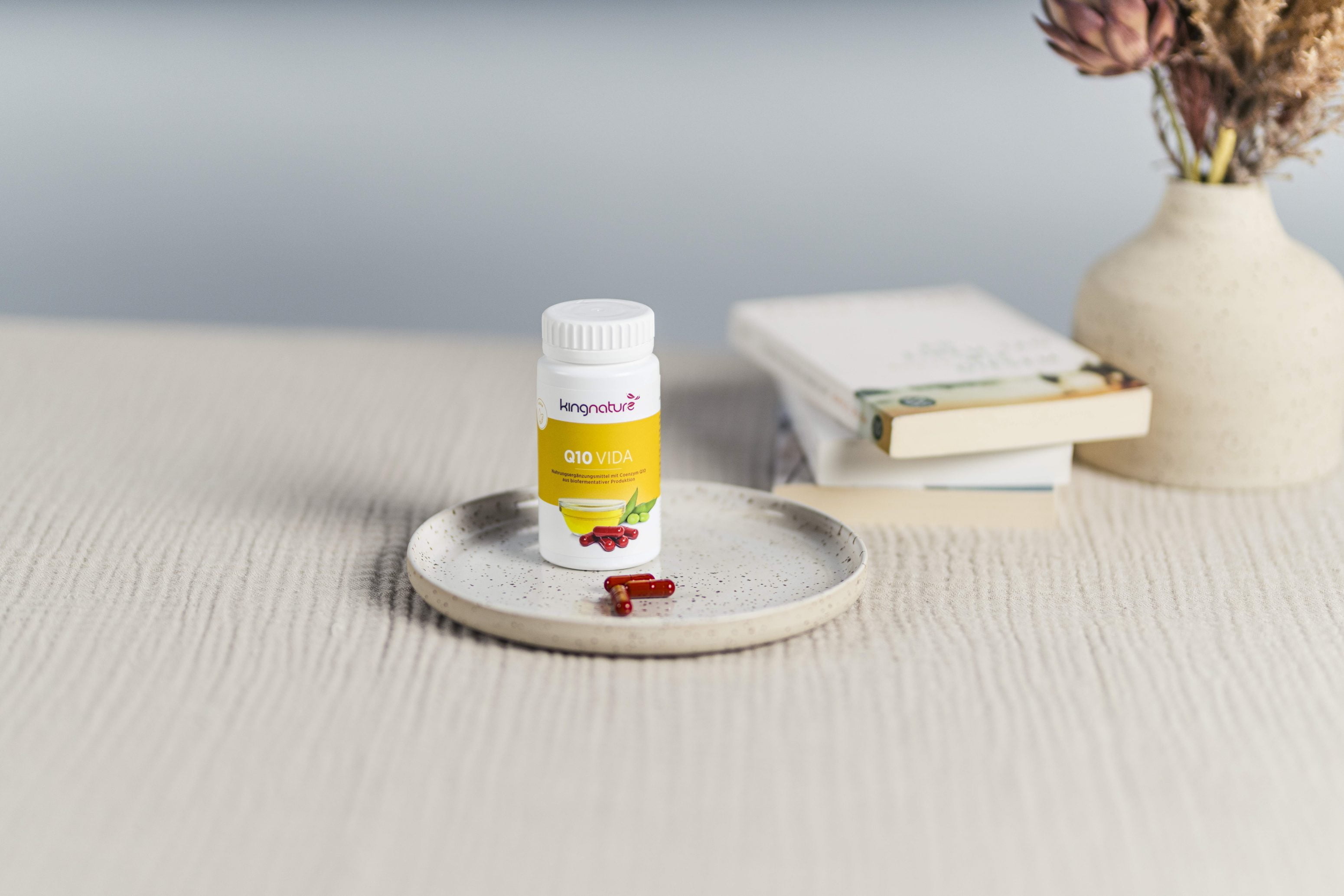
Life energy! Natural Q10 from biofermentative production of brewer’s yeast, in liposomal form.
Coenzyme Q10 in the form of ubiquinone
No Q10 = no energy: Coenzyme Q10 or ubiquinone has an important physiological function in the human respiratory chain.
Coenzyme Q10 is involved in energy production in every cell of our body.
Q10 Vida – the natural coenzyme Q10 (ubiquinone)
Q10 Vida contains only the original, purely biofermentatively produced coenzyme Q10 from Kaneka and soya lecithin. [loggedin]After fermentation from brewer’s yeast, the Q10 is purified by extraction, filtration, crystallisation and chromatography. The production process is 100% natural and clearly differs from cheap preparations or synthetically produced Q10. [/loggedin]Q10 Vida does not contain a single additive or excipient. The capsule shell is made of HPMC and is therefore entirely of plant origin.
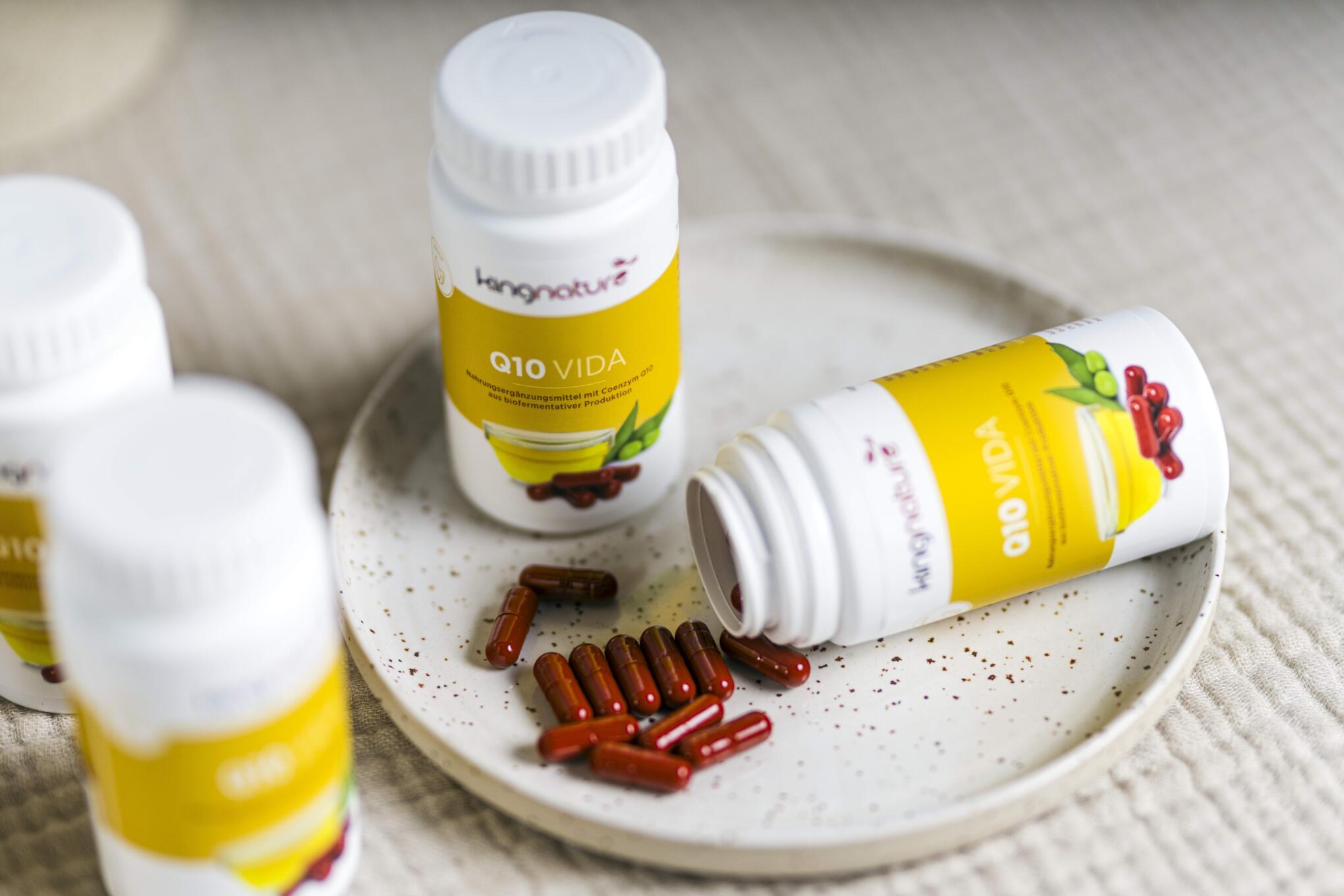
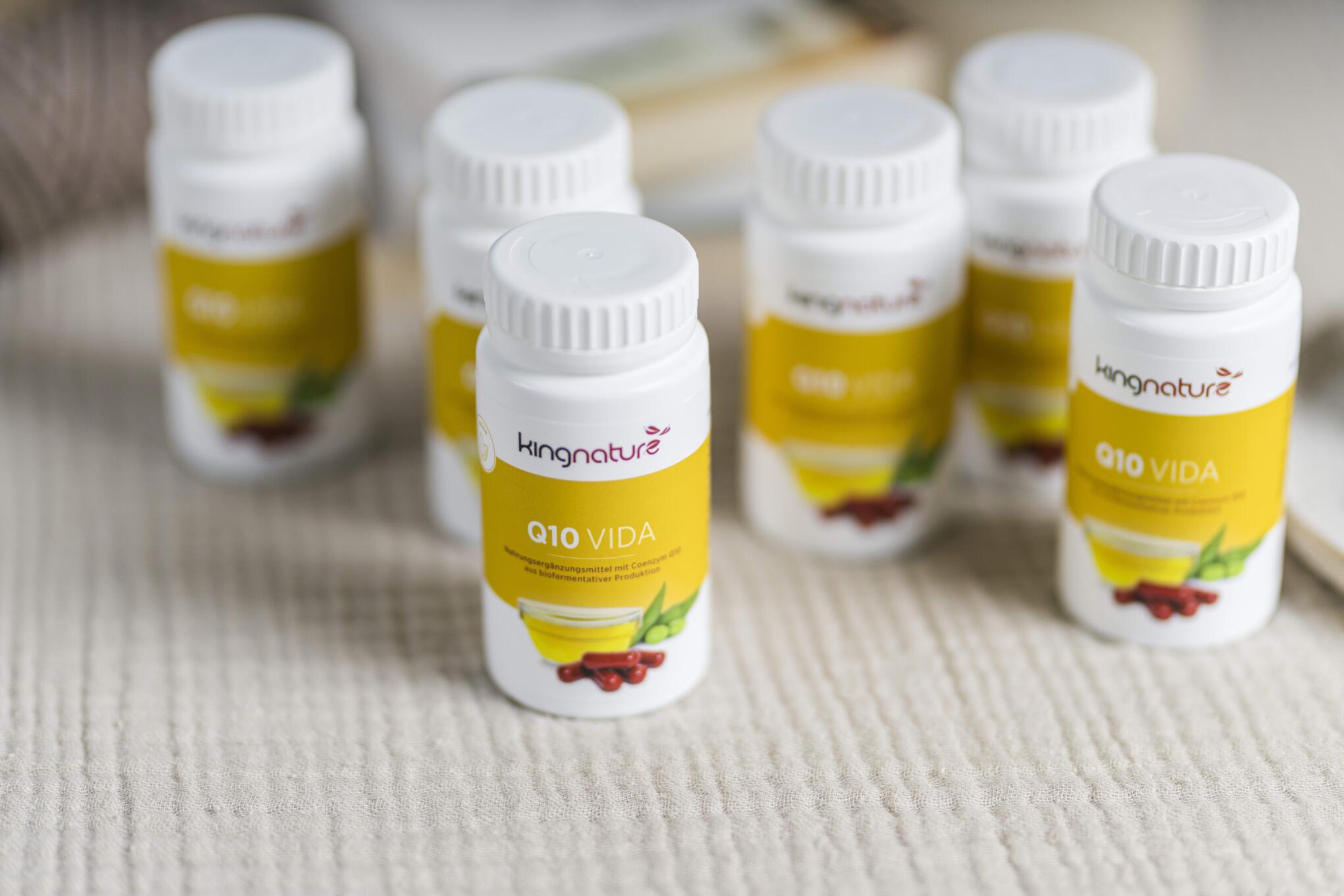
Liposomal coenzyme Q10
Coenzyme Q10 is normally offered in dry form, e.g. as tablets or encapsulated powder. In order to increase absorption in the intestine, we process coenzyme Q10 in liposomal form. Soya lecithin serves as the liposomal basis. [loggedin]The Q10 molecules are packed into a liposomal structure using a special ultrasound process. The graph compares the concentration of liposomally packaged Q10 in blood plasma with that of Q10 in dry form (powder capsule). It can be clearly seen that a larger proportion of the Q10 in liposomal form reaches the blood. [/loggedin]
Fig. from Weber, C., Bysted, A., Holmer, G. (1997): Coenzyme Q10 in the diet-daily intake and relative bioavailability. Molecular aspects of medicine, 18, 251-254 Cf. also Wajda R., Zirkel, J., & Schaffer, T. (2007): Increase of bioavailability of coenzyme Q10 and vitamin E. Journal of medicinal food, 10(4), 731-734.
What is the difference between ubiquinone and ubiquinol?
Ubiquinones are found in the human body in two different chemical forms.
- Ubiquinone is the fully oxidised form of the coenzyme Q10.
- Ubiquinol is the reduced or activated form of coenzyme Q10.
Reduced and oxidised form of coenzyme Q10
Both forms of Q10 are important for the body’s energy balance. In order to generate cellular energy, ubiquinone must be converted by the body into ubiquinol. In the blood plasma of healthy people, more than 90% of the coenzyme Q10 exists in the reduced form (ubiquinol).
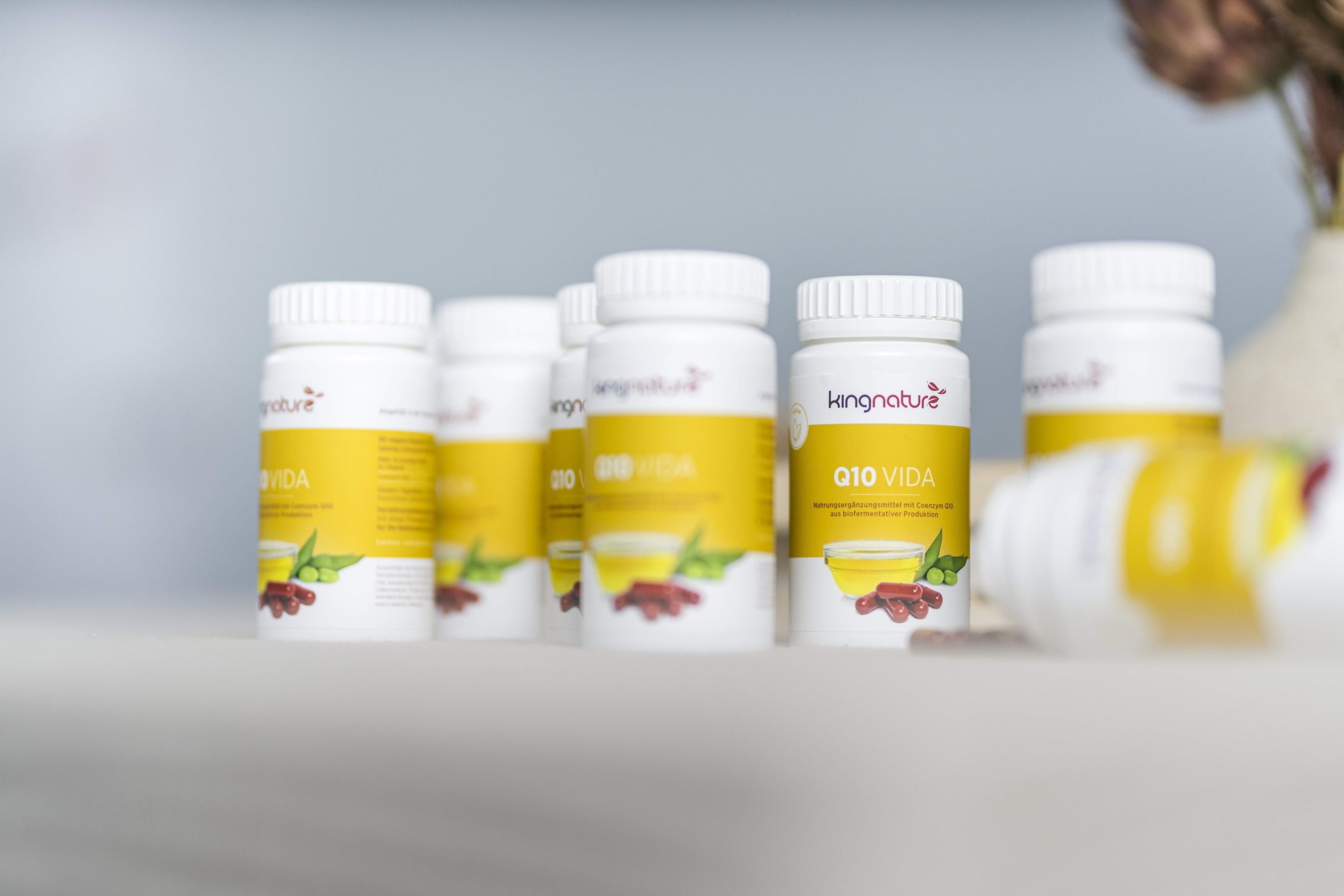
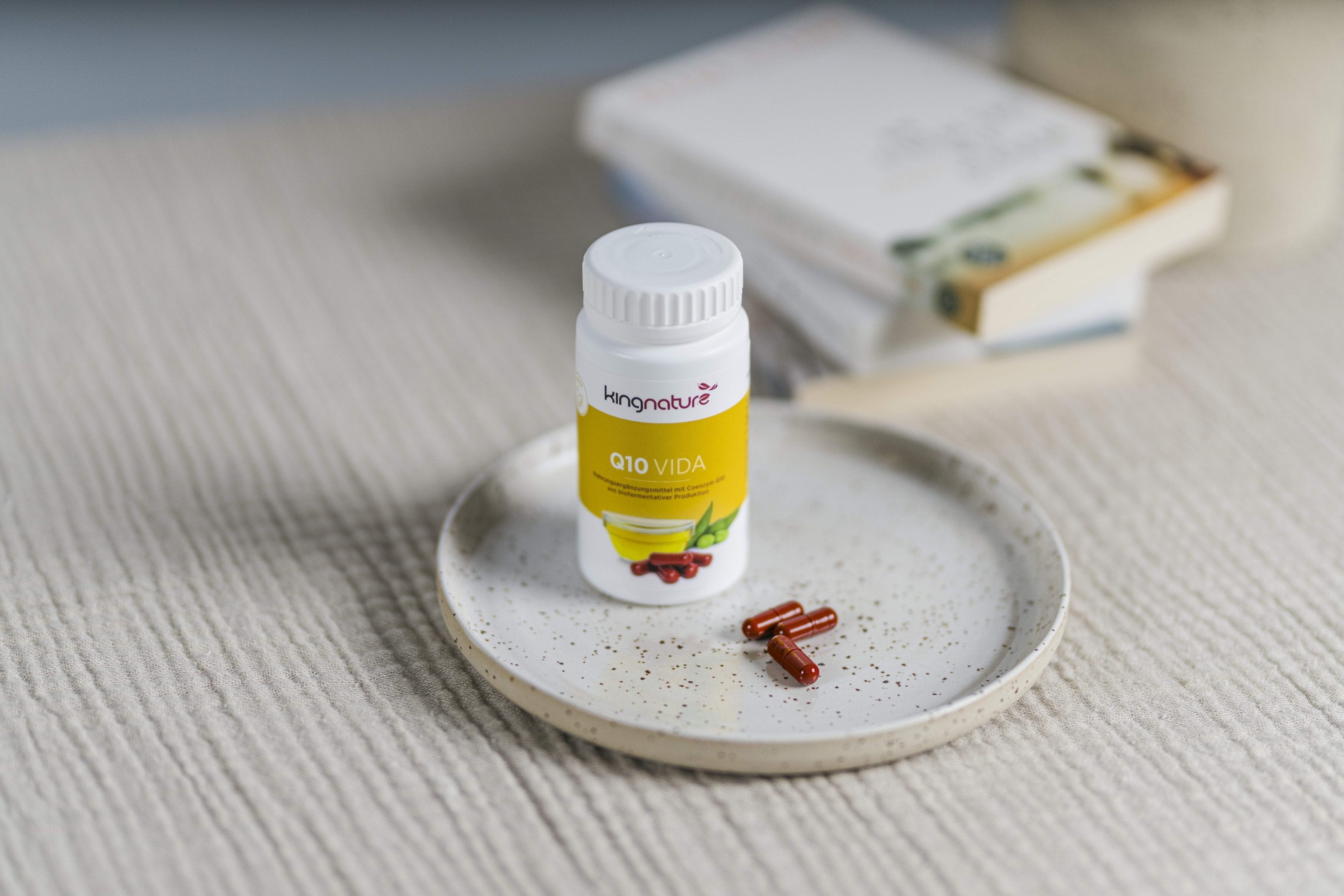
What is Q10 Vida used for?
The health claims that are possible for a dietary supplement such as Q10 Vida and its ingredients are precisely defined by law. We are not allowed to go beyond this, even if it should have scientifically confirmed physiological properties. Make up your own mind with an internet search.
Coenzymes for more cell energy
Recommended products with the coenzymes Q10 and NADH:
What are the benefits of Q10 Vida?
- 50 mg coenzyme Q10 per capsule in the form of ubiquinone
- Natural Q10 from biofermentative production of brewer’s yeast
- Better absorption due to liposomal formulation
- Contains no additives or excipients
- Vegetable vegi capsule made from HPMC
- Vegan product
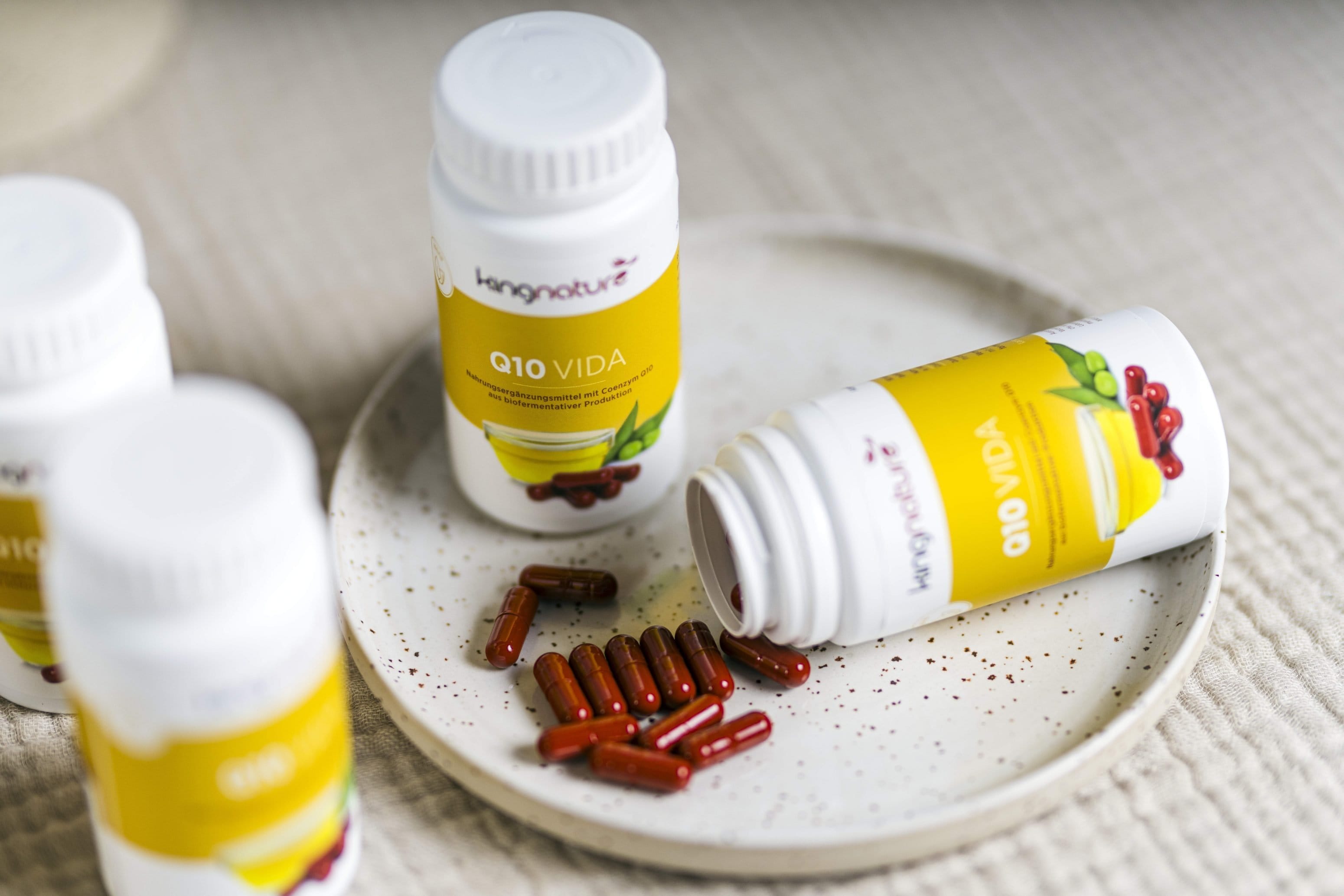






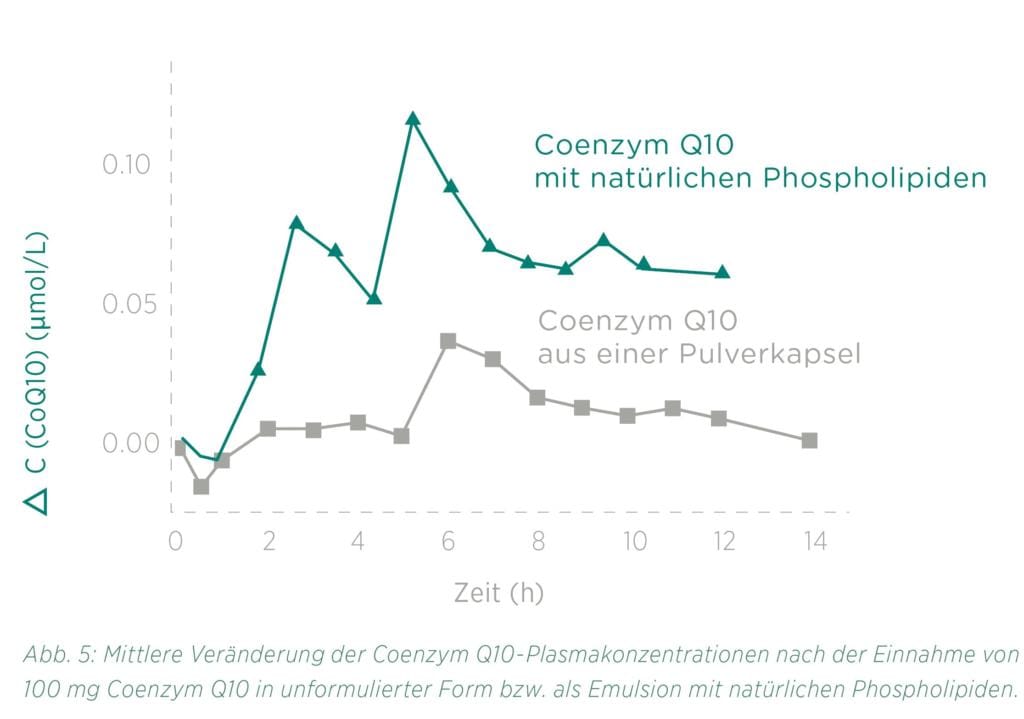

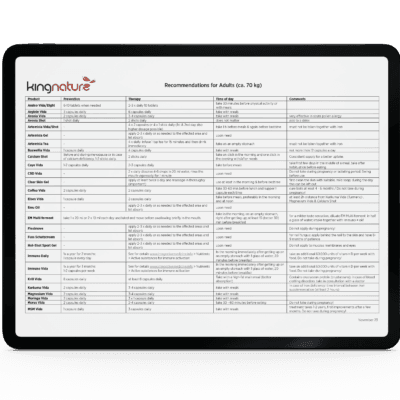





Reviews
There are no reviews yet.